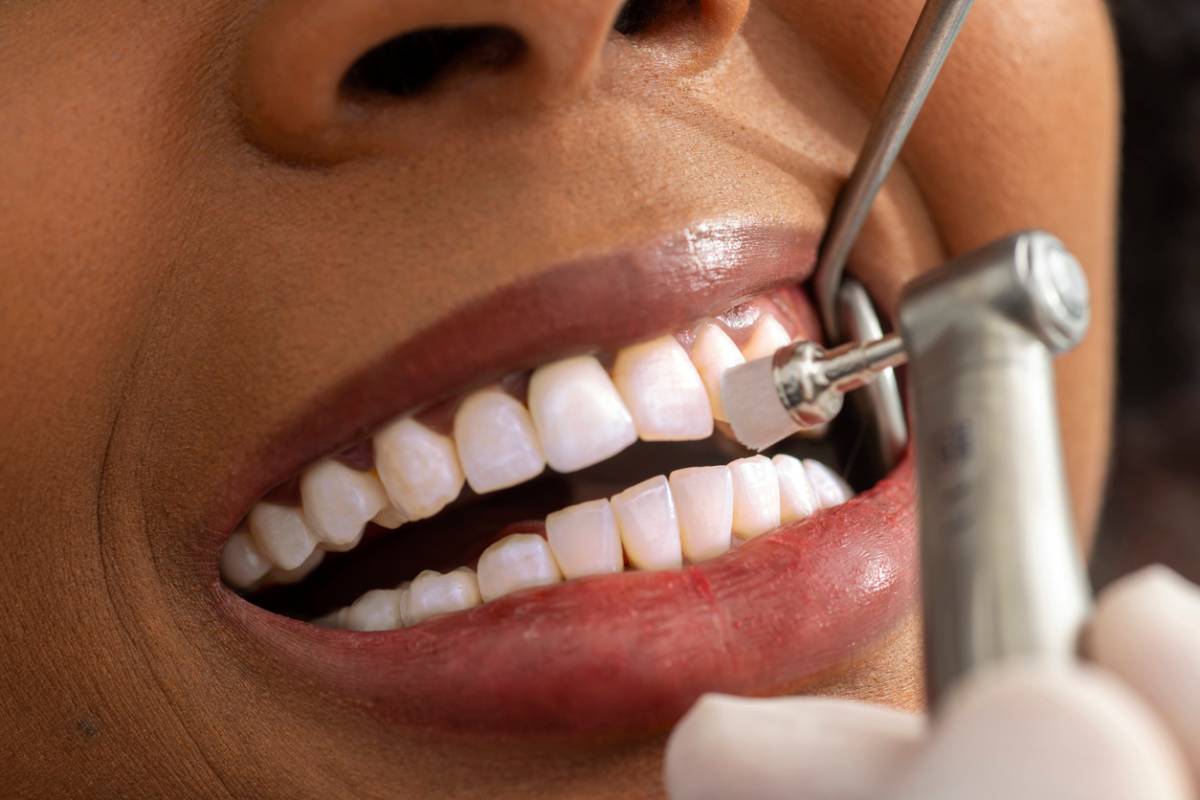Professional teeth cleaning is an essential part of a good oral health care routine. Still, some people want to know: Can you remove tartar from your teeth without a dentist? In this article, we talk about the tartar removal process and explain why you can not do it without the professional health of your hygienist.
Can You Remove Tartar from Your Teeth Without a Dentist?
Tartar is a hardened plaque. It is a sticky and acidic substance filled with bacteria that is highly harmful to your teeth if it is not removed regularly. While it might seem that you can remove tartar by just brushing and flossing your teeth more diligently, unfortunately, it is not possible.
Tartar can be removed only with the use of professional dental instruments, such as dental scalers. Some people might have an idea to purchase such an instrument and try removing tartar at home without the help of a dentist. However, not only is it going to be ineffective, but it is also extremely dangerous for the enamel of your teeth.
If the enamel of your teeth becomes damaged and scratched by a non-expert use of a dental scaler or any other instrument you might use for tartar removal at home, it will be impossible to restore. Enamel damage makes teeth vulnerable to bacteria and acid and can lead to staining and discoloration, cavities, and tooth decay. If the damage is severe, the teeth are not likely to survive.
Damaged enamel can be remedied with such procedures as dental crowns or veneers that cover the tooth and protect it from access to bacteria and further damage. However, such procedures are costly and cannot always be covered with insurance. Thus, it is much more advantageous and safe to sign up for a professional dental cleaning to remove tartar and avoid tooth damage and future complex restoration procedures.
The Importance of Regular Tartar Removal at a Dental Office
As we mentioned before, tartar is a hardened plaque that accumulates on and between your teeth over time. The leading causes of tartar accumulation include:
- Insufficient oral hygiene
- Frequent consumption of goods high in sugar and starches
- Smoking and use of tobacco products that reduce saliva production, thus contributing to plaque and tartar buildup
- Genetic predisposition
- Some medical conditions, such as diabetes, can increase the risk of tartar buildup
Tartar buildup is a leading cause of tooth decay and gum disease (also called periodontal disease). The latter is a chronic bacterial infection of the gum tissue that is very hard to treat, especially in its advanced stages. Periodontal disease and other chronic infections in the mouth can lead to multiple adverse consequences:
- Bleeding, inflamed, swollen, and darkened gums
- Persistent bad breath and unpleasant taste in the mouth
- Teeth that are unstable in their sockets
- Tooth loss
- Jaw bone deterioration and changes in facial structure as a result
- Issues with the other organs in the body, such as the heart, lungs, joints, and gastrointestinal system
How to Prevent Tartar Buildup
As we mentioned previously in this article, you can not remove tartar at home, but you can prevent its buildup by following several simple rules:
- Brush your teeth thoroughly twice a day, paying special attention to hard-to-reach areas. Spend two full minutes brushing your teeth.
- Use a fluoride toothpaste that will help fight bacterial growth in the mouth and make your teeth more resilient to cavities.
- Use a toothbrush that is comfortable for you and does not hurt your gums when you brush along the gumline. Brushing too aggressively can lead to gum recession.
- Floss every evening, making sure to remove plaque from both sides of each tooth. Be careful not to lacerate the gums with the floss thread. If flossing is challenging or inconvenient for you, try additional instruments such as floss threaders or interdental brushes. Ask your dentist to recommend you an interdental brush of the correct size.
- Include a water flosser (for example, a Waterpick) in your oral hygiene routine. This device sends pressurized water to your teeth, effectively loosening plaque and food debris. It is proven to improve the condition of the gums and reduce tartar buildup when used in combination with traditional flossing and brushing.
- Do not skip bi-yearly professional cleanings and fluoride treatments.
Get a Professional Cleaning at Dental Care of Pomona
Do not postpone a professional dental cleaning. Make an appointment with an experienced hygienist at our dental office today. We are looking forward to taking care of your oral health.


